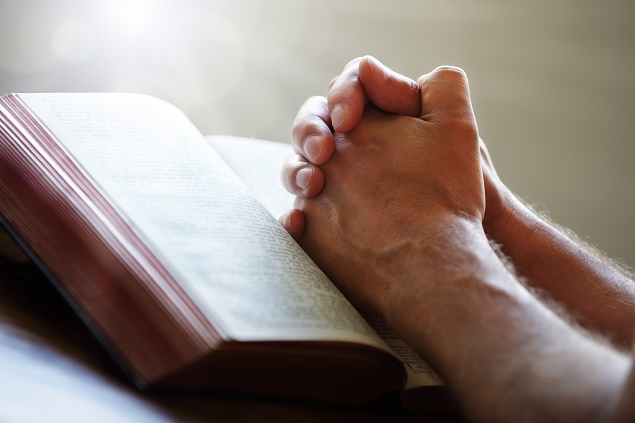“Minister out of the overflow.” Dr. Steve Seamands shared this advice in one of my seminary classes and it’s never been far from me during my ministry. Most of us preachers find ourselves attempting to serve God out of emptiness, hoping to fill it by experiencing affirmation and ministry success; but that’s a prescription for ineffectiveness, misery, and burnout. Instead, Seamands advises, we want the Holy Spirit to fill our lives so our serving flows naturally, or rather, supernaturally, from the overflow of God’s grace. In the twenty-plus years since first hearing this tidbit of ministry wisdom, I’ve attempted to live it.
John Wesley offered similar and salient advice to one of his preachers concerning the necessity of prayer for the preacher. The passage, which is taken from his 1760 letter to John Trembath, has been often quoted. However, the quote is usually shortened and shorn from its context. The fuller quote is:
“O begin! Fix some part of every day for private exercises. You may acquire the taste which you have not: what is tedious at first, will afterwards be pleasant. Whether you like it or not, read and pray daily. It is for your life: there is no other way; else you will be a trifler all your days, and a pretty, superficial preacher.”
Generally, “a pretty, superficial preacher” is left off (“pretty” in 18th c. English meant “cunning, skillful, or artful”). Wesley wrote this to a preacher in Cork, where Wesley had just visited and had been disappointed to find the Methodist Society in decline. He partially blamed Trembath’s lack of effective preaching for the decline, and Wesley’s advice is for a preacher who has lost his earlier zeal and persuasiveness. Perhaps Trembath had succumbed to burnout. Whatever the cause of his decline, the people placed under his charge had complained to Wesley about his problems in the pulpit. Wesley’s council: read and pray. Read the scripture, other edifying works, and pray. Wesley’s final advice to Mr. Trembath is instructive: “Do justice to your own soul: give it time and means to grow. Do not starve yourself any longer. Take up your cross and be a Christian altogether. Then will all the children of God rejoice (and not grieve) over you.” I shiver to think how many have grieved over my preaching because of my lack of spiritual preparedness!
We can improve our preaching by learning new techniques and rhetorical devices. Listening to excellent preachers can spark new creativity in us. We ought to do the hard work of exegesis. Beginning preparation early in the week is helpful. The Saturday Night Special generally doesn’t get the job done. The most important aspect of sermon preparation, however, is prayer.
Prayer prepares us to preach by doing two important things.
1. Prayer Helps Me Hear God
God’s Word is a lamp for our feet and a light to our path (Ps. 119:105) and prayer lights the lamp. The Bible consists of printed words on paper. It becomes the Word of God for us when we approach the text with faith-filled prayer, trusting God truly wants to speak to us and through us. I have often found myself rushing through my daily quiet time, rapidly reading the scripture and perfunctorily saying a prayer. God can break through this hurried approach, but his will and way is more assuredly accessed if I take the time to slow down, center on him, and allow the Holy Spirit to speak to me.
Listening to God requires that I pay attention to how the text “jumps” off the page at me. What grabs my attention? What about this scripture makes me uncomfortable? What might God want to say to me through this text, today? When preparing a sermon, prayerfully reading the scripture, not only with analytical and exegetical eyes, but also with open ears and an open heart, enables me to hear what God is saying to me and what he wants to say through me, to his gathered people. Prayer helps me hear God.
2. Prayer Prepares the Preacher
What percentage of the message is the messenger? I don’t have a good answer, except to say it’s significant. My heart toward my people shines through, whether it’s negative or positive, judgmental or gracious, condemning or encouraging. My heart is put on display in my preaching. So, what do I want my heart and my attitude to communicate? I want to communicate the holy love of God. But to communicate holy love I need to be filled with holy love.
God wants to shape my character, just as much, if not more, than he wants to shape the character of my congregation. God wants me to love the people under my care the way he does. Who’s not been tempted to throw up their hands in frustration and say “Forget it! These people are never going to change!” Most likely there are Jonah moments in each or our lives when we want to run to Tarshish. God’s heart is for us to stick to it, to be faithful to our calling, to preach the word in and out of season, to witness to the hope that the resurrection reveals.
Prayer makes me available to the sanctifying work of the Holy Spirit. Prayer slows me down enough for God to get my attention. Prayer places me in partnership with Jesus, as he seeks to gather a people to himself who will join him in blessing the world. Before I spend any time in the pulpit, I need spend significant time being molded, shaped, and conformed to the image of Christ through prayer.



